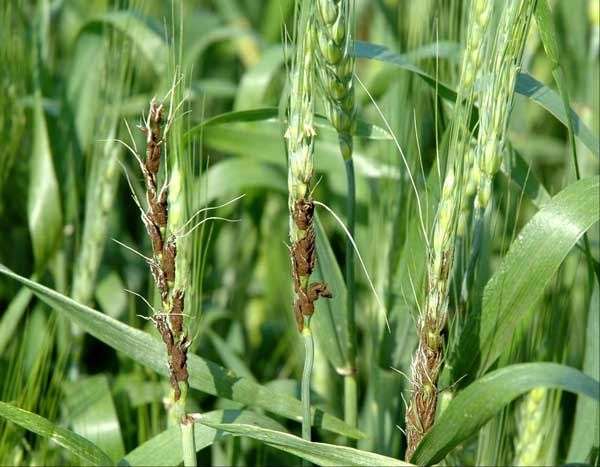Wheat flag smut was spotted earlier this year
By Diego Flammini, Farms.com
Kansas wheat farmers are being encouraged by the state’s Department of Agriculture to be extra diligent during wheat planting by choosing seed varieties that have a high resistance to fungal diseases and to apply the proper fungicides before drilling wheat.

Wheat flag smut was detected in Kansas earlier this year and the disease can not only impact yields, but possible trade opportunities as well.
“Research has shown that the use of certified seed combined with fungicide seed treatments, which are very economical, are highly effective in preventing the presence of flag smut and is an important tool in successful mitigation of the disease,” said Jeff Vogel, KDA’s Plant Protection and Weed Control program manager.
Vogel said that producers and seedsmen should follow proper protocols to ensure that a thorough and even application of fungicide is made to the seed to ensure a high level of product efficacy.
Symptoms of wheat flag smut include:
- Leaves twisting laterally
- Excessive numbers of tillers produced
- Long, gray-black streaks could develop between the veins of the leaf blades and sheaths
- The streaks have a greasy appearance
There are other methods to break the disease’s cycle including trying to avoid early planting in soil that’s too warm and moist and considering crop rotation with non-host crops like soybeans, sorghum or corn.
Join the conversation and tell us if you’ve ever had to battle wheat flag smut. What impact did it have on your crops and what measures did you take to prevent it from coming back?